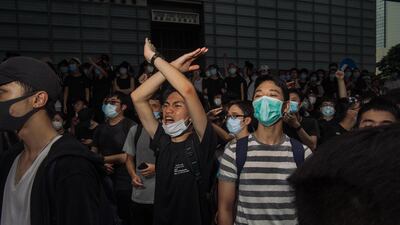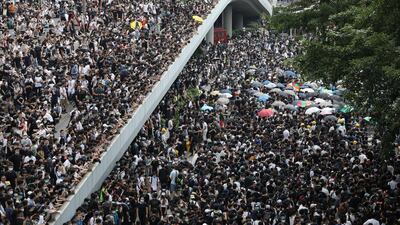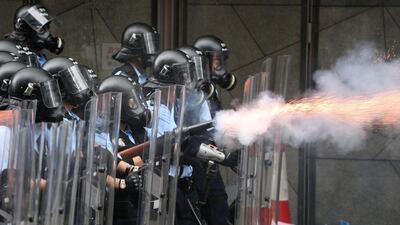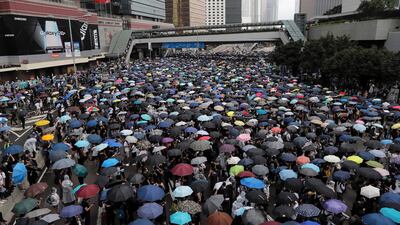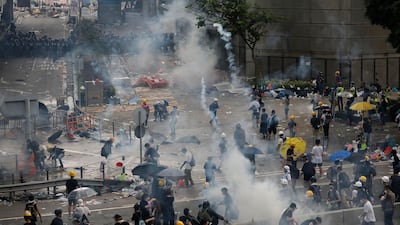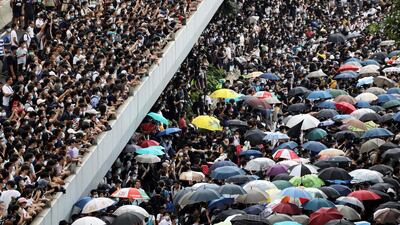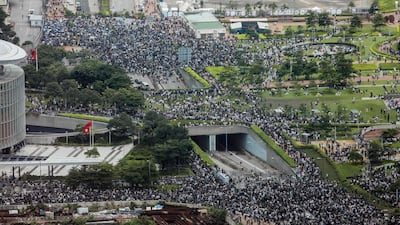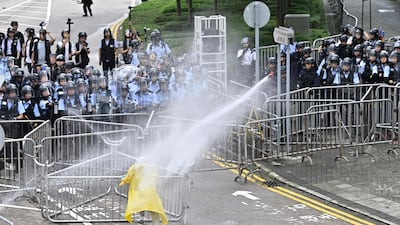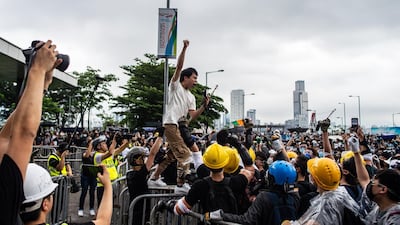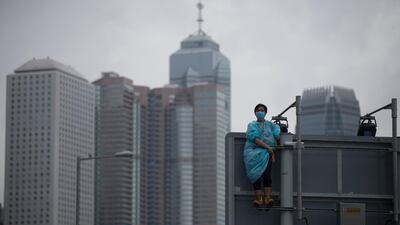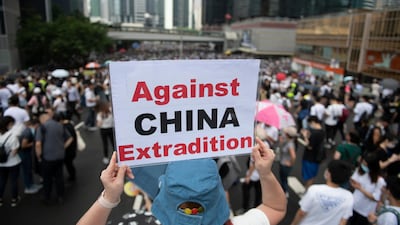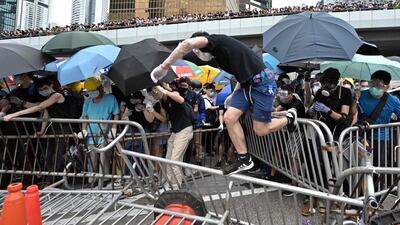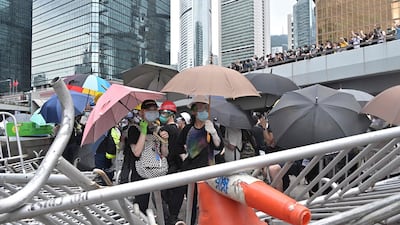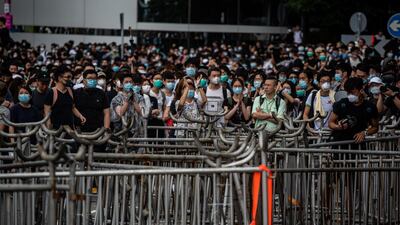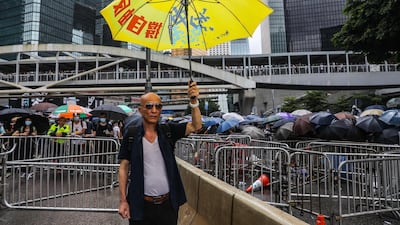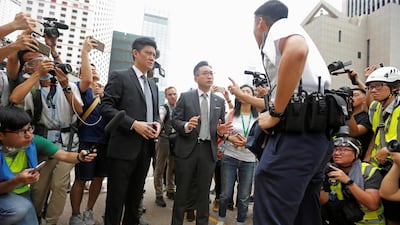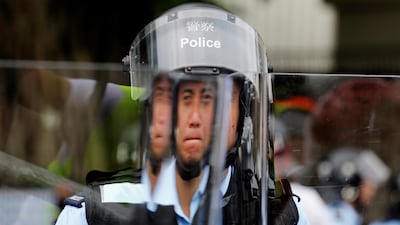Rubber bullets and tear gas have been fired at demonstrators in Hong Kong as tens of thousands took to the streets to protest against a controversial new extradition bill.
The protests, which began over the weekend, were aimed at stopping a government plan to allow extraditions to mainland China that is expected to pass its final vote on June 20.
Although the protests began peacefully, they spiralled out of hand after protesters ran at police with umbrellas. As well as pepper spray and tear gas, police used batons to force the demonstrators back.
More than 10 people were wounded in the clashes, Cable TV reported.
Shops in the city's Central district put up their shutters amid concerns their stores would be damaged by protesters.
Hong Kong’s Legislative Council (LegCo) was forced to postpone a debate about the proposed legal changes that was due to take place at 11 am on Wednesday.
Protesters blocked key roads around the legislative council building and city centre resulting in the meeting being rearranged for an unspecified "later time".
Hong Kong’s police chief, Stephen Lo, called the protests a “riot situation” and confirmed that his officers used rubber bullets as well as tear gas.
Speaking to reporters at a press conference, member of Hong Kong's Democratic Party Roy Kwong expressed his solidarity with protesters and called on the Carrie Lam, the leader of the autonomous territory, to resign.
“Carrie Lam, have you gone crazy? You are now treating Hong Kongers as your enemy,” Mr Kwong told reporters. “You are declaring war on our generation. It is clear and simple ... You said that if the mainstream opinion believed you were not fit to be the Chief Executive you would resign. Please fulfill your election promises.”
The latest wave of demonstrations began on Tuesday evening after an online petition called on 50,000 people to gather at 10 pm local time. Protesters intended to stay outside the legislative council in the Admiralty district but authorities shut down the area due to concerns it would be stormed by demonstrators.
But that did not stop thousands of protesters, many of them young, from pouring into the surrounding streets, handing out food and face masks to defend against pepper spray and tear gas.
On Monday, Hong Kong’s Parliament said it would press ahead with the extradition law, which would allow suspects to be sent to mainland China. The bill has attracted international criticism, with some nations threatening to remove special permissions for the semi-autonomous region.
Millions of people also took to the streets on Sunday to protest the move in what were the semi-autonomous region’s largest protests in years.
The law in Hong Kong is controlled by a pro-Beijing majority.
A protester who gave only his first name, Marco, said he hoped the action would persuade Chief Executive Carrie Lam’s administration to shelve the proposed amendments to the Fugitive Offenders Ordinance and the Mutual Legal Assistance in Criminal Matters Ordinance.
"We want the government to just set the legislation aside and not bring it back," he told the Associated Press.
A fellow protester who gave her name as King said the protest was a watershed moment for Hong Kong’s young generation, who face difficult job prospects and skyrocketing housing prices.
“We have to stand up for our rights or they will be taken away,” she said.
Dennis Kwok, a member of LegCo who organised the march, said he was concerned about the legislation and that it would do “irreparable” damage to Hong Kong’s rule of law.
Ms Lam has tried to placate the protesters by introducing measures to ensure the protection of human rights, as many fear activists could be deported to China if the government presses ahead with the legislation. Business leaders also fear it could damage investor confidence in Hong Kong and erode its competitive advantages.
Hong Kong is one of two special administrative regions of China, which grants it the highest degree of autonomy and is not considered a part of mainland China. The other region is the former Portuguese colony of Macau.
Under its “one country, two systems” framework, Hong Kong was supposed to be guaranteed the right to retain its own social, legal and political systems for 50 years following its handover from British rule in 1997. However, China’s ruling Communist Party has been seen as increasingly reneging on that agreement by forcing through unpopular legal changes.
